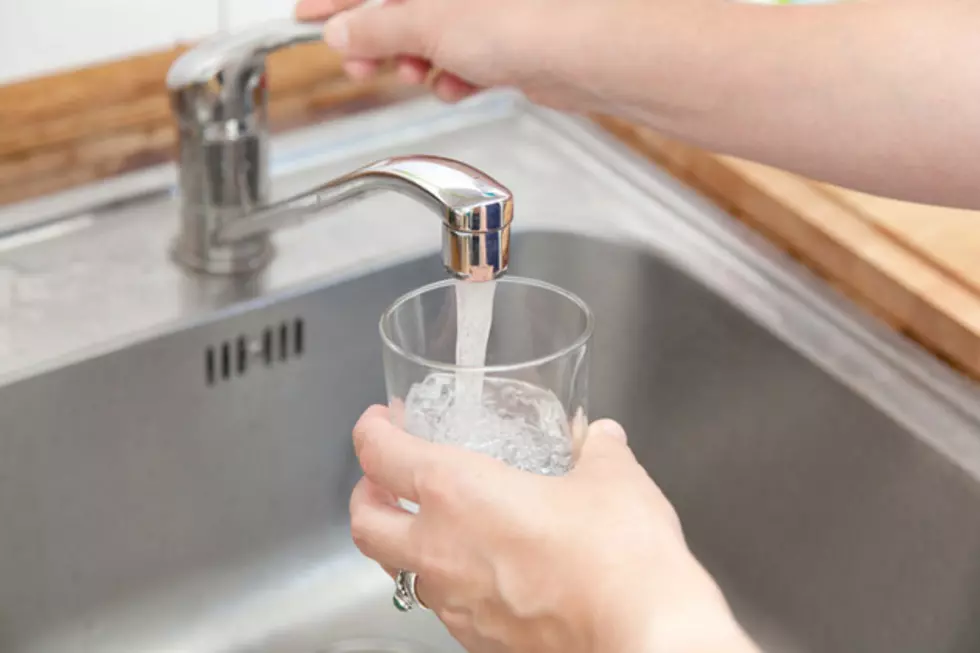
NJ lawmakers to consider spending billions to update aging water systems
The state’s transportation infrastructure finally dealt with after a months-long standoff and an unpopular hike in the gas tax, state officials are already turning attention to what could be the next big infrastructure undertaking: drinking-water systems.
A legislative task force, formed after renewed attention to lead in some drinking water, held its first hearing Wednesday. The four-four session touched on a range of topics, and one recurring theme was an acknowledgment that the public will have to be persuaded why billions in spending is needed.
“It's not an easy thing to start talking about the amounts of money that have to be raised to deal with these problems. Even the minimum amounts are fairly substantial. And there has to be the political will to overcome the inherent opposition to raising money,” said former Gov. Jim Florio, honorary co-chairman of the Jersey Water Works collaborative.
“To the degree that you can get people to listen and understand these things – everyone knows we need water, so that's not a hard sell. But no one appreciates the seriousness of the magnitude of the problem we have,” Florio said.
It’s believed that the cost for eliminating lead in the drinking water, which often seeps in from old pipes, would cost more than $8 billion alone.
“I've come to appreciate that getting people excited about spending billions of dollars on what is largely invisible is the most challenging part of this work,” said Margaret Waldock, director of environmental programs at the Geraldine R. Dodge Foundation. “Whether it's drinking water, sewage or stormwater, we don't think about this until it’s an emergency.”
“These are going to be enormous public expenditures. They already are,” said Chris Sturm, New Jersey Future's managing director for policy and water.
Daniel Van Abs, a Rutgers University professor and member of the state Clean Water Council, said the state’s water treatment systems are in good shape but that the distribution systems – pumps, pipes and storage facilities – need attention.
“Infrastructure decline accelerates over time, and so the longer we wait, the worse it gets faster,” said Van Abs.
“Infrastructure costs are unlike most other social priorities. If we invest half of what's needed, our systems will fail,” Van Abs said. “We have no choice but to invest, but there are better and worse ways of investing.”
Assemblyman John McKeon, D-Essex, said the $8 billion figure sounds like a daunting amount but that it amounts to around 1.1 percent of the state budget if broken into $400 million a year for 20 years.
“It's a sum that we could ultimately figure out and deal with,” McKeon said.
McKeon said one issue he’s concerned about is how to deal with lead that gets into residential drinking water in the last few feet of that water’s delivery into the home. Those pipes are privately owned, not by municipalities, public utilities or investor-owned utilities, he said.
“If that's the problem, from curb to faucet, that's a lot of burden on individual homeowners and taxpayers,” McKeon said.
It’s difficult to estimate the potential costs for that fix, said Michael Maloney, business manager for Plumbers and Pipefitters Local 9. The type of pipes can vary house to house but might involve pulling out walls of homes, he said.
“Yeah, it's a big problem,” Maloney said. “And a lot of it's lead, a lot of it's galvanized. A lot of it, it’s going to fail very shortly if they're not failing already. So there's a problem there.”
The task force is supposed to complete its work in six months.
New Jersey: Decoded cuts through the cruft and gets to what matters in New Jersey news and politics. Follow on Facebook and Twitter.
Michael Symons is State House bureau chief for New Jersey 101.5 and the editor of New Jersey: Decoded. Follow @NJDecoded on Twitter and Facebook. Contact him at michael.symons@townsquaremedia.com.
More From New Jersey 101.5 FM









